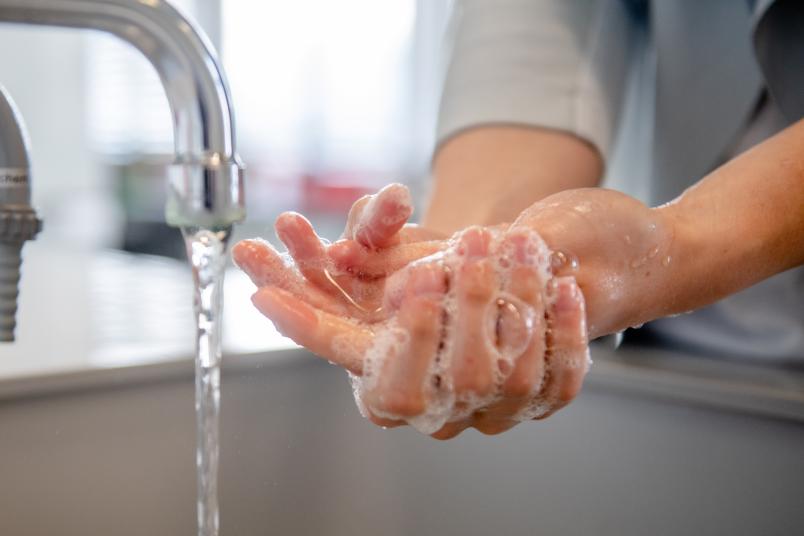
Virology
Hygiene rules are also effective against new coronavirus variants
Similar to the wild type virus, soap, heat and alcohol are also effective against the new coronavirus variants.
The mutant Sars Cov-2 viruses B.1.1.7 and B.1.351 are classified as “variants of concern”, because they are more easily transmitted than the wild type virus or because our immune system does not recognise them as easily. A research team from Bochum, Jena, Nuremberg and Duisburg-Essen studied how the so-called British and South African variants react to disinfection and cleaning and how long they remain infectious on different surfaces. The researchers found that the variants have a similar surface stability as the wild type virus under laboratory conditions, but can be effectively eliminated by disinfection and thorough hand washing, heat or alcohol treatment. They report their results in the Journal of Infectious Disease from 16 May 2021.
For this study, the team from the Department for Molecular and Medical Virology and the Chair of Materials Discovery and Interfaces at Ruhr-Universität Bochum (RUB) cooperated with the European Virus Bioinformatics Center Jena, the University Hospital Duisburg-Essen and Paracelsus Medical University Nuremberg.
The fact that viruses change genetically over time is well known. Variants of concern are those that give the virus an advantage, for example by allowing it to replicate faster, become more infectious or enable it to evade the immune response. The British and South African variants have accumulated several mutations which result in an increased transmission and, in some cases, lead to more severe courses of disease. “Therefore, the question arose whether they also differ from the original variant in terms of their sensitivity to hygiene measures,” explains Toni Meister from Ruhr-Universität Bochum.
Heat, soap, alcohol
For this reason, the team analysed how long the variants remain infectious on surfaces made of steel, silver, copper and on face masks and how they can be rendered harmless by means of soap, heat or alcohol.
It turned out that both variants, as well as the wild type virus, could be inactivated when treated with at least 30 percent alcohol for at least 30 seconds. “Common disinfectants are therefore effective against all these variants,” says Stephanie Pfänder from RUB. Thorough hand washing with soap could also lower the risk of infection. Heat also works against the virus: after 30 minutes at 56 degrees Celsius, all variants were rendered harmless.
To find out whether the stability of the different mutant variants on surfaces differs from each other, they analyzed the amount of infectious virus particles on surfaces made of steel, copper, silver and on surgical and FFP2 masks over 48 hours. “The surface stability did not differ between the virus variants,” points out Eike Steinmann from the Department for Molecular and Medical Virology at RUB. “As described several times before, copper in particular has a very strong antiviral effect”. In conclusion, the team did not detect any differences between the different mutants in terms of their sensitivity to different hygiene measures.